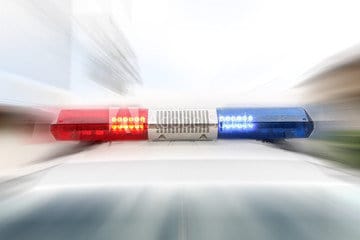It may not be a life-threatening emergency…… but what if it is? Don’t wait until it is too late to call an Ambulance. In my capacity as a Nurse and First Aid Trainer, I have been noticing something worrying within the community. It may not be a new trend, but it is certainly one that could cost lives….
There seems to a lot of hesitation and sometimes reluctance within the community to call an ambulance.
I am faced with this hesitation/reluctance several times a month in my capacity as a nurse in the community. I have seen the uncertainty amongst people when I have attended incidents within the community. I even hear the reluctance and concern at the start of my some of my first aid courses.
So where is this hesitation coming from? In my experience, it is multi-dimensional and could come from lack of confidence, denial or concern about the cost.
Confidence: is it serious enough?
Sometimes it is crystal clear when an ambulance is needed. However, unlike in the movies a medical incident or accident is not always dramatic. This is when people can start questioning whether an ambulance is needed… they think are they overacting by calling one?
Several incidents that I have attended in the community spring to mind. Each of them weren’t “movie worthy” in their drama, the person was conscious and breathing on each occasion. There was no obvious injury, but they clearly weren’t behaving or feeling “themselves.” I was not the first on the scene, however, I was the one who had the confidence to say that the symptoms were indicative of a stroke which meant an ambulance needed to be called ASAP. Someone suggested that maybe he just “needed a minute” because what if it wasn’t a stroke. My response was “what if it is?” An ambulance should be called in the early stages of a potential emergency, rather than when it is too late.
It may not be a life-threatening emergency…. BUT WHAT IF IT IS?
Denial: no one wants to admit something serious might be happening.
As mentioned serious medical events aren’t always dramatic. As a practice nurse, it is fairly commonplace to have a patient ringing to say they have symptoms that are strongly suggestive of a serious medical event such as a heart attack. They ring to ask if they can come in and see a Dr. When I suggest that the right place for them is the hospital and the right way to get there is by ambulance there is typical reluctance, and denial believing that the symptoms are likely muscle pain or reflux. I reply “but what if it isn’t?”
Cost: An Emergency Ambulance is not cheap, but the service and expertise they provide in saving lives is priceless.
If a person is not in denial about what is happening and has the confidence to call an ambulance, there is still the cost barrier for some people to get past. In SA unless it is for a motor vehicle accident, an emergency ambulance to treat and transport, costs approx. $955. Often private health insurance will cover at least one emergency ambulance a year. However, not everyone has private medical insurance. There is also an option to get Ambulance Cover from SAAS. However, again not everyone has this. I have personally seen cost be a real barrier which can cause people to try to (unsafely) get themselves to hospital or delay calling an ambulance. Both of these options put either the casualty or the wider public at risk. From questions during my courses, I am also aware that bystanders are (incorrectly) concerned that they may end up with the bill if they call the ambulance, which again could delay calling potentially lifesaving treatment. Whilst I absolutely understand the financial burden of calling an ambulance (having just received a bill for one), calling one without hesitation can without a doubt save lives. How do we put a value on that?
How do we address these barriers and reverse the worrying trend?
As with anything first aid related, prevention is the key. I firmly believe that education is the answer to overcoming and preventing the confidence and denial barriers. The more people that attend a first aid course, the less hesitation we will see over calling an ambulance. This is because people will be better prepared to recognise and respond to the signs and symptoms of a medical or injury related emergency. First aid courses are not just for people needing to have a certificate for work, they are to help you be a prepared and confident community member.
Being better informed may also help some of the financial concerns. Research what your Health Insurance or other concessions will cover so you are aware in advance. It is not the time to find out that you are not covered while going through a stressful event. As the SAAS website suggests, people with a Centrelink Healthcare card and Pensioners may maybe eligible for a concession. Payment plans can also be arranged. However, if people are able to afford the small annual fee to have the peace of mind that Ambulance Cover provides, I highly recommend it. This may prevent you making a decision concerning you or your family’s health based on finances.
Calling an ambulance without hesitation can without a doubt save lives. How do we put a value on that?
The trend that I am seeing and hearing every week is concerning me. Please help me to reverse it… get informed and make sure you don’t hesitate over calling for an ambulance for a loved one or community member. It may not be a life-threatening emergency…. BUT WHAT IF IT IS?
.

